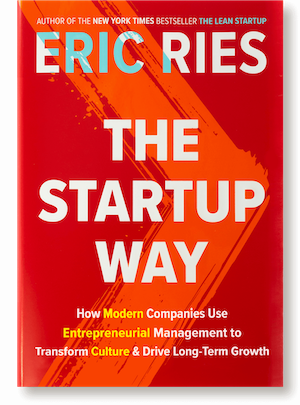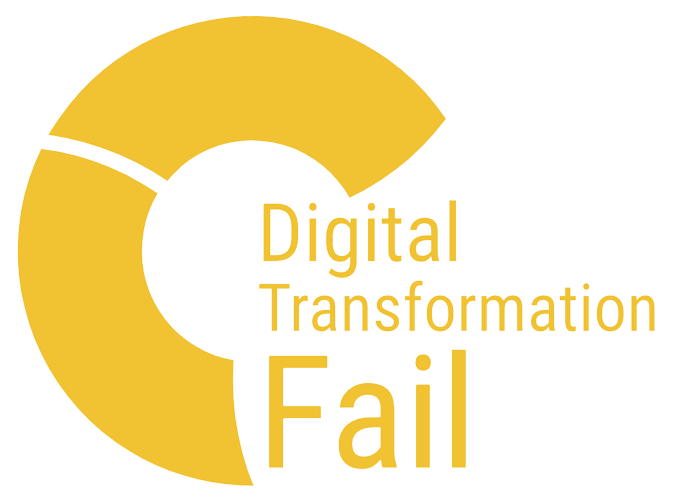The world is a fast-moving, uncertain place and organisations have to transform from top-to-toe to survive, right?
OK sure, but what we call “digital transformation” today isn’t working. The experts tell us it fails over 67% of the time. It is very complex and difficult and far reaching across all components of your organisation, and we probably need to hire those experts to take on this mammoth task.
But what if we’re barking up the wrong tree?
As digital strategists and technologists we preach lean principles, agile, design thinking and data-driven experimentation. So why don’t we practice these ideas in the transformation process itself?
This website celebrates the glorious failure of digital business transformation being too big for its boots.
“
Start small, think big. Build, measure, learn. Why isn’t transformation like this?
The Failures
Toys"R"Us
"Hmmm... a little problem with this online sales thing. I know! We should Let's undertake a digital transformation to update our shopping cart."
BBC
"Let's take a few years to build our own Dropboxy-type thing and not really review the progress along the way. Yay FUN!"
General Electric
"How about we pour money into a siloed business responsible for all funky new digital stuff across our 125 year old, $100 billion company. "
Considering so many transformations fail, it is surprisingly difficult to find the case studies of all those failures. Analysing failure allows us to learn, improve and overcome the dogma of insurmountable digital business transformation projects. If you have a case study to contribute please send to me.
The all-powerful transformation framework
We can learn a lot from the research and experience of the BCGs and McKinseys of the world. There is a wealth of well-informed analysis out there on the success factors in digital business transformation. However, “transformation” has turned into a catch-all term for any digital project, whether or not it really aims to develop digital capabilities.
A new movement of continuous transformation emphasises an iterative, data-driven approach to the change management process itself, avoiding the pitfalls of top-down, wide-scope moonshot projects.
Read more about what we’ve learned from digital transformation dogma and the landscape of opportunities and challenges ahead:
BLOG:
Digital transformation doesn’t work. Why aren’t we pivoting? >>
Inspiration
Eric Ries, author of The Lean Startup, has outlined a continuous transformation approach suited to today’s world of high-uncertainty in the creation of new innovative value streams. The Startup Way discusses this system of entrepreneurial management running in parallel with traditional management methods, which has been applied in companies small and large, in developed startups and traditional incumbents such as GE and Toyota.
Key outtakes from the book:
- Transformation should be treated as a method to enable continuous innovation, rather than a one-off adjustment.
- Internal startups can be fostered with a distinct organisational structure to enable innovation.
- Entrepreneurship is the missing function in organisations, as important as marketing or finance. This function is not the startup itself. It is tasked with managing the system for startups to be discovered, nurtured and scaled when ready.


BANJO DIGITAL CULTIVATION
Of course, we still need to enable organisations to reap the opportunities of the digital age. To be more agile, efficient and driven by data and insights.
Banjo offers a holistic approach to digital strategy and growth initiatives. We help companies large and small develop lean, data-driven capabilities through experimentation, learning and iteration. Digital Cultivation is based on 3 Banjo Principles:
Iterate
Iterative learning cycles should not just be the final product of transformation. The transformation process itself should be continuous small experiments, constantly improved and propagated throughout the organisation.
Measure
Gone are the days of requirements delivery from digital agencies. Digital projects should enable entrepreneurial spirit from the bottom-up. Provide the system and tools for your team to find more efficient ways of working and new value streams.
Propel
Gone are the days of requirements delivery from digital agencies. Digital projects should enable entrepreneurial spirit from the bottom-up. Provide the system and tools for your team to find more efficient ways of working and new value streams.


